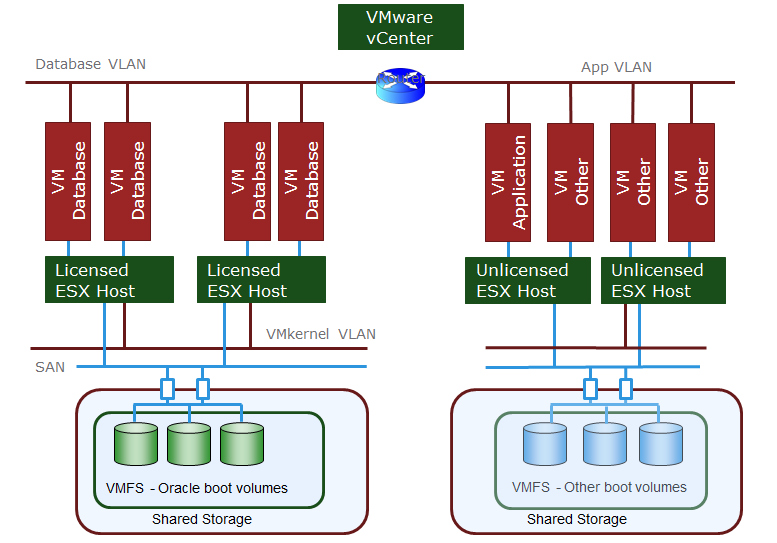 Last week I was in London to attend the UK Oracle User Group licensing event. After a number of sessions with excellent material leading to very interesting discussions (one was showing – with permission – some of my own content, with the comment that it saved this customer “a shitload of money” – thanks John for the mention :), there was a session from Oracle LMS UK (License Management Services).
Last week I was in London to attend the UK Oracle User Group licensing event. After a number of sessions with excellent material leading to very interesting discussions (one was showing – with permission – some of my own content, with the comment that it saved this customer “a shitload of money” – thanks John for the mention :), there was a session from Oracle LMS UK (License Management Services).
A few interesting points from their presentation are worth sharing as otherwise you would not get much insight in the working methods of LMS.
- LMS does not charge any fee for their services – it’s all free
- LMS recommends you involve them to verify if you have any compliancy issues – as the service is free and thus much cheaper than hiring 3rd party license consulting. They see no reason to get any other advice than from LMS themselves.
- LMS worldwide has a yearly revenue of roughly $2 billion (I tried to verify these numbers but can’t find any detail in yearly reports, but looking at the overall software revenue numbers, this amount seems realistic)
- I can’t exactly recall the number of audits that LMS performs on a yearly basis. I believe it was mentioned to be around 45,000
- Customers get audited roughly every 3 years
- According to LMS, customers get audited when it’s their turn, not because Oracle sales is asking for it or because of other anomalies.
I found it very entertaining to hear LMS saying they completely fail to see the point in hiring independent license consultants as you can get the same service from them for free (yep they really said it – ROTFLOL)
Rumour goes that an audit is triggered by various events (inconsistent buying, cancelling existing licenses, plans to replatform, etc). LMS stated that the only reason you get audited is because “it’s your turn”. I asked them the question “So you never ever get influenced by Oracle sales to start an audit with a customer?”
LMS answer: “correct”.
Now I don’t have first hand experience with LMS so I must give them the benefit of the doubt. However, the strong non-verbal expressions of some of the customers in the room were more informative and entertaining than LMS’s answer…
Let’s take a deeper look at the numbers. How can LMS have any revenue if they don’t charge customers for their “service”? The $2B must be coming entirely from finding non-compliance issues. Also, many of these non-compliance issues get settled by customers agreeing to buy expensive products or services you don’t want or need (Engineered Systems, cloud services), as compensation – which is much more common than just paying the invoice. I’d guess the ratio is 1 to 5 which means LMS finds roughly $10B in out-of-compliance stuff.
Given that the total number of customers is over 400,000, and every one being audited every 3 years, you would expect LMS to perform 133,000 audits per year which does not match the 45,000 mentioned. I can’t explain this but a wild guess: Some of those 400,000 names are part of the same company and thus one audit can involve multiple customers. Or I got the 45,000 wrong. Who knows.
Let’s also make an assumption on how many customers will be found to be not compliant when audited. I assume 50% but the numbers could be far off. Out of 45,000 customers being audited per year, 135,000 every 3 years, it would mean, every 3 years, over 65,000 customers have compliance issues and the 3-year revenue plus influenced sales of LMS would be $30B.
Quick math: the average cost of not being compliant is $30B/65,000 is roughly $460,000 (and this is an average – including very small and very large customers).
In the Q & A round, the topic of licensing on VMware was addressed pretty soon. It looks like a large portion of all customers are struggling with this. On the question “do I need to license my entire VMware farm if I run Oracle only on a few physical servers?” the answer was “It depends”. After a few iterations LMS was still not clear on this and all they could recommend was “build it and then let us review your environment afterwards to find out”.
 At that point I was a bit annoyed with this – and asked the question again myself in as clear as possible wordings:
At that point I was a bit annoyed with this – and asked the question again myself in as clear as possible wordings:
Say you have a 4-node VMware cluster, 2 nodes are running Oracle and are fully licensed. The other 2 nodes don’t run Oracle and are not licensed. There is complete network and storage isolation between the licensed and the non-licensed hosts so Oracle software is never even visible on the non-licensed hosts. The only connection is the VMware administration tool [vCenter]. Do I need to license 2 or 4 hosts?
LMS answer: It depends.
My follow-up question: Can you explain on what it depends as the given scenario seems clear enough to me?
LMS answer: Which VMware version?
My comment: Pick any you like (but after some verbal ping-pong I said, let’s pick vSphere 6.0)
LMS answer: It depends. We would have to look at the specific situation on a case-by-case basis.
At that point, unfortunately the discussion was aborted by the UKOUG organizers because the next session was starting. So I admit, the title of this topic is sort of clickbait because LMS refused to give a clear answer.
But some thoughts and conclusions:
- LMS did NOT say you HAVE to license every VMware host. If this was the case in ALL situations then they could have easily said so. Which makes me believe there are situations where full licensing of everything is not required.
- LMS wants to review the scenario on a case by case basis. Given that you will be audited sooner or later anyway, it might actually be a good idea to design your Oracle on VMware environment and have LMS sign off the solution to avoid future problems.
- Don’t invite them before you’re 100% sure about the current state being compliant or you would shoot yourself in the foot with this. Work with 100% independent license consultants (the ones LMS doesn’t recommend to work with).
Now why would Oracle (through LMS) enforce such a big roadblock in the customers’ mindset, who are willing to move to virtualized private cloud deployment? The answer (IMO) is very simple. Going virtual threatens the revenue stream of Oracle because it allows a customer to run with far less physical hardware (and therefore, requires less licenses to operate). I’d be happy to explain to anyone willing to listen on how that works.
Oracle must be licensed on all hosts that have Oracle installed and/or running. So if you make very sure a server does not have either, you don’t have to pay for licenses. It’s mentioned in your contract.
See my previous blogpost on details on how to achieve this licensing isolation within a VMware environment.
“Pay attention to the fine print. It’s far more important than the selling price.”
— Frank Underwood, House of Cards
This post first appeared on Dirty Cache by Bart Sjerps. Copyright © 2011 – 2016. All rights reserved. Not to be reproduced for commercial purposes without written permission.
4798 total views , 1 views today

Comments are closed.